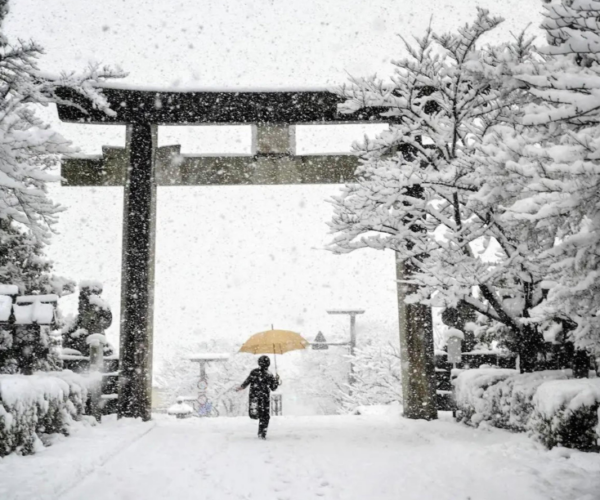This article originally appeared in the January 2023 issue of CONNECT.
The Good, the Bad, and the Importance of Communication
Alexandra Crombie (Gunma)
Traveling long distances for work, school, or pleasure is so common now that our relationships must mold to accommodate this. For most of my adult life I have either known a friend in a long distance relationship or been in one myself. It takes a unique toll, but also shows a corresponding strength in the way that people overcome the barriers presented by physical distance. Distance doesn’t have to mean division, and can actually encourage a more intimate emotional connection. When people are given space to grow themselves, and are ready to embrace growth in their partner, communication can allow a deeper understanding of one another.
It is common to move around multiple times in your life. Many move out of their family home to live in a different city to attend university, and again for employment purposes when they graduate. The former landed me in a long distance relationship. Although I am no longer with that person, the two years we spent living apart taught me lots about myself.

There are also lots of people that live apart from their partners due to financial necessity. A cost of living crisis coupled with extortionate rent prices in the U.K. means that many have been forced to move back in with their parents. I’m sure these issues are mirrored in many countries across the globe as fuel prices soar and economies struggle to recover from the pandemic. Some may have no choice but to accommodate distance due to their living situation.
We are also expected to be flexible in the careers that we pursue—you must often be willing and able to take opportunities when they arise, despite their location. COVID-19 has somewhat mitigated this but the option to work from home is often still limited, especially for entry-level roles. For many, moving abroad to study at a particular university is their best chance at building a life for themselves and pursuing a career they truly care about. Not to mention the popularity of a traveling stint in South East Asia or South America.
All these forces are at play . . . and yet so many of us choose to maintain our relationships. I think this is largely possible because when you love somebody, what makes them happy also sustains you. If they have to leave your physical company, your town, your country, or even your continent, it is enough to know that they remain yours.
In my case we lived in different cities within the U.K. and then different countries when I moved to Stockholm to study. Although it was easier to jump on a train than a plane, the fact they were not in my immediate vicinity was the pressing issue. In both situations I was missing out on the small, intimate moments that only come about when sharing the same physical space.
Simply coexisting with someone you love was top on the list of things missed when I asked others in the same situation. I find this comforting. Oftentimes in our society, performative romantic gestures are admired and monetary value suggests love and commitment. Yet all we really want is a specific pair of feet on our laps.

It can also be beneficial in surprising ways to spend time away from your partner. Our habits naturally shift depending on our lifestyle. This happens for some more than others, and time spent alone is a good example. Some people will always seek out some solitude no matter how busy they are. Others enjoy the constant stimulation of the company of others. This can intensify in a relationship, and easily turn into spending every waking second in each other’s presence. Life can also be overwhelming at times, and alongside working or studying, spending quality time with a partner often takes precedence.
These aspects of a relationship are great in their own way, but they can also be a barrier to activities that require undivided attention and concentration. Creative outlets are often most relied upon when we are alone, and pursuing our own hobbies and talents brings satisfaction. This satisfaction is neither superior or inferior to time spent with a partner, just different.
So . . . what allows you to feel close to somebody that is physically distant? Communication is definitely, absolutely, undoubtedly, the most important aspect of a relationship. This is true regardless of the distance between the two (or more) parties. It only becomes more important when those parties are living completely separate lives.
Communication allows for space to overcome issues together. This includes the difficult and perhaps most important question: “Is this relationship working?” It also includes the little things: sending pictures of a recent trip, introducing them to new friends over video call, or simply setting aside time to chat. Keeping them in the loop with the good and the bad, and not putting pressure on your relationship to fit a preconceived idea of perfection, seems to be the smoothest route to reunion.
Alexandra Crombie is a first-year JET living in Gunma prefecture. Her favourite colour is a dark, muted blue, and she likes to spend her free time camping or exploring with friends. She also enjoys watching copious numbers of films.




